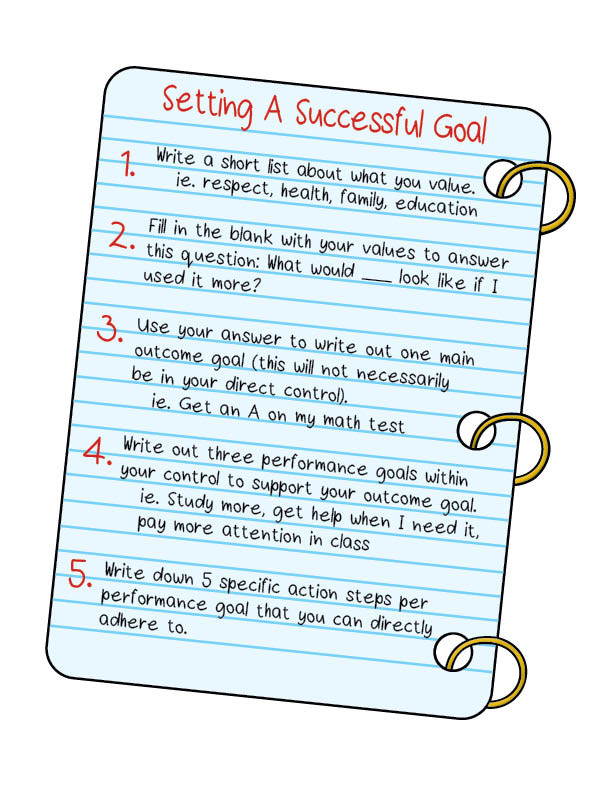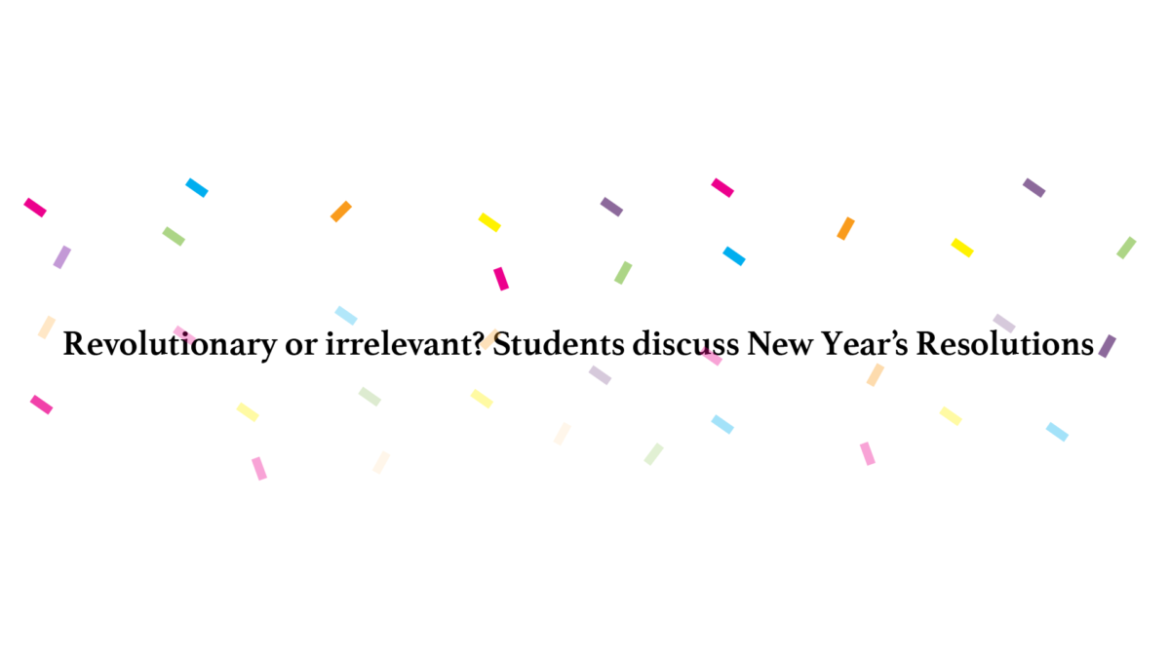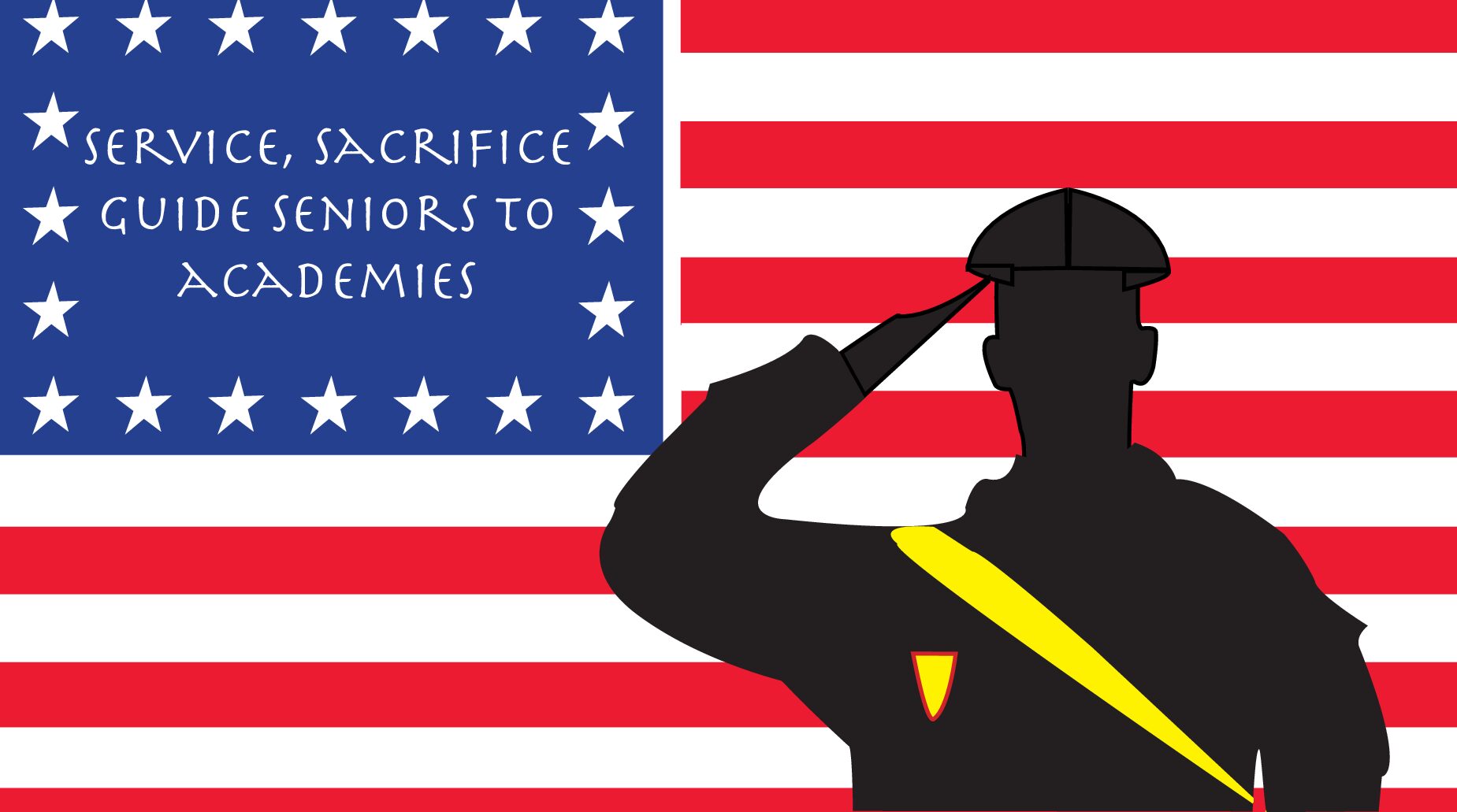Abigail Cushman, Executive Editor
@abigailccourant
A teenager needs at least eight hours of sleep. Athletes go to the gym. Higher grades will set you up for success. Are you sure you want to eat that? You waste too much time on Tik Tok. Get outside. Spend time with friends. Spend time with family. Relax. Do something. Be different. Be happy. Speak up. Follow his example. Follow her example. It goes on and on. There is a seemingly never-ending list of standards, pressures, and recommendations that can make a student feel like they need to create various changes in their life.

When the Earth finishes another route around the sun, New Year’s resolutions begin to take shape as people form goals to, hopefully, create some of the changes that society emphasizes so often. “You look at the New Year and although it’s cheesy, ‘new year, new me’ can be a statement that you do follow through with. I find that it’s the best time of year to make a change,” said senior Cole Schubert.
In 2021, Cole set a fitness-based New Year’s resolution and, despite some challenges, he followed through with his goal. “I was really enjoying running a lot over the summer and into the beginning of the school year. Now it’s gotten cold outside, so it’s not as fun, but I find that the structure of group activities helps with that,” he said. In fact, Cole joined track to give himself a solid, set plan that he knew he would adhere to. “You can’t slack off on a workout on a day that you’re scheduled to be there.”
Seeing the times decrease motivated Cole as he worked towards his resolution, and he believes that it’s important to have personal incentive behind any goal. “People will say, ‘Oh, you need to have this body type or these grades or this personality,’ and they all merge into the idea that you need to set a goal to be that. I don’t think that’s always super healthy, especially if you’re not doing it for yourself,” he said.

Junior Julia Paine has also observed that society can put pressure on New Year’s resolutions. She has seen people make resolutions with the purpose of telling their friends about them, rather than setting goals to create change. “Writing New Year’s resolutions has slowly become more expected across society, which is even demonstrated in school as many teachers often ask you to write resolutions before midterms,” she said.
Nevertheless, Julia sees the new year as a great way to form new goals. In the past she has kept a written journal to write down and log her resolution progress, but this has proved to be ineffective. “Every year I’ve told myself that I am going to stop procrastinating on my homework and put more energy into stretching for dance, but I find myself falling back into old habits quickly and almost disregarding my resolutions,” she said.
Julia is not alone in the goal setting struggle. Freshman Nick Mohamad has noticed that most people who do make resolutions fail to follow through with them. “I feel the concept of New Year’s resolutions is overworked and then overlooked,” he said, explaining why he does not make resolutions at all. “I remember being in elementary school learning how to create ‘good goals’ and such. Now I never hear of people creating New Year’s resolutions.”
While he may not create New Year’s resolutions specifically, Nick does have long term aspirations. “A performing arts goal I might consider pursuing in life is to become a TV/film actor,” he said. With this larger goal in tow, he is also open to the idea of creating smaller goals outside of the new year. “Summer goals are much better because there is no school to worry about, but that doesn’t mean anyone should stop following their dreams,” he said. And Nick really might be onto something here.

According to Counseling Department Chair Cynthia Rivera, students should look at windows in their schedule to set goals regardless of the new year. “For Seniors, January is a good time because they’ve probably gone through the whole application process,” she said. Juniors, on the other hand, will begin the college process around then. “I like the new year, it’s the beginning, but there’s no reason it has to be then. They could say, ‘In March, when my winter season is over, I will schedule my driving class because there is time in my schedule to do that.’”
Outside of the scheduling factor, goals are most achievable when they are simple, low pressure, and broken down into steps. “Say for example my goal is to get back to exercising. I have to set realistic times that I’m actually going to exercise. I could say everyday I’m going to get up at 5 a.m. and get on the Peloton, but realistically I will shut that alarm off and not get up,” Ms. Rivera said.
Across society people often set unsustainable goals, taking on too much at once. “Even in the gyms you can see it’s very busy in January, but in February it’s just fine because people can’t sustain what they’re doing,” Ms. Rivera said. For this reason, resolutions should be adaptable to varying schedules and energy levels. “There are days when you have a big test or major assignments due, so even then you can look at your week and say, ‘On that day I won’t be able to do this because I’ll be studying, I have a long practice that day, but I’ll get right back to it on this day.”
As 2022 begins, Julia and many others will again embark on their New Year’s resolution journeys. “First, I want to make sure that I address school and education to affirm that I stay motivated and inspired to put forward my best effort,” she said. And in a second part of her goal she won’t overwork herself, creating time for friends and family instead. “I want to make sure that I go into the New Year with balance so that I don’t channel all of my energy into one part of my life and disregard the others,” Julia said.




